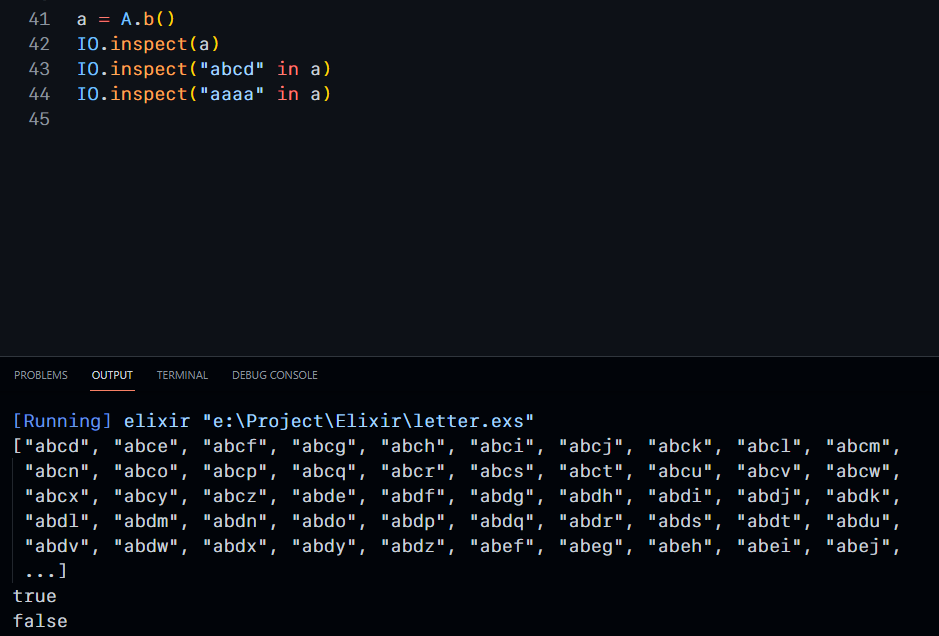Hello friends
I need to write the same code in Elixir as simply as possible
Please introduce your solutions to me
Python:
import itertools
alphabets = ['a', 'b', 'c', 'd', 'e', 'f', 'g', 'h', 'i', 'j', 'k', 'l', 'm', 'n', 'o', 'p', 'q', 'r', 's', 't', 'u', 'v', 'w', 'x', 'y', 'z']
keywords = [''.join(i) for i in itertools.product(alphabets, repeat=3)]
print(keywords)
Thanks


 ")
")



















